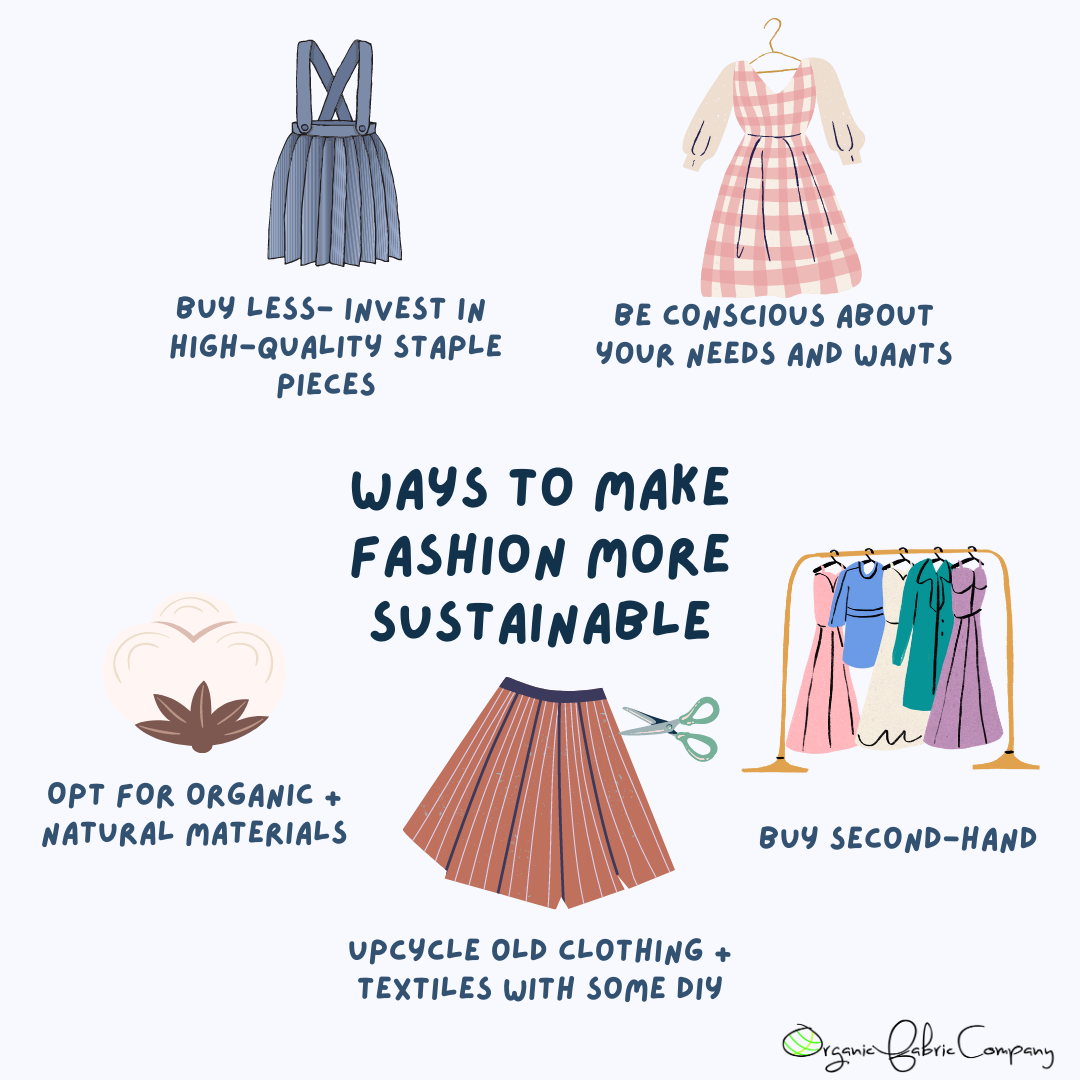Cape Town Sustainable Fashion: Redefining Design with Ethical Selections
Cape Town Sustainable Fashion: Redefining Design with Ethical Selections
Blog Article
Stay Ahead of the Curve by Discovering Innovative Fashion Trends
In an industry as dynamic as style, remaining ahead includes even more than just complying with current fads-- it requires an exploration of development. Smart fabrics, for instance, are changing garments into practical masterpieces, while 3D printing is transforming style procedures with its adjustable, waste-reducing capabilities. As sustainability ends up being a cornerstone, advancements like environmentally friendly products and circular fashion methods are reshaping ecological obligation - Cape Town Sustainable Fashion. Moreover, the merging of technology and fashion declares a brand-new age of consumer interaction. Exactly how, after that, can these emerging trends redefine the future of style, and what ramifications do they hold for brands seeking to thrive in this advancing landscape?

Welcoming Smart Textiles
In recent years, the apparel industry has observed a transformative change with the integration of smart fabrics, a sophisticated technology that blends modern technology with material. This advancement represents not just a fusion of looks and capability however additionally a considerable jump in the direction of sustainability and customization in style. Smart textiles, additionally understood as e-textiles, embed innovative electronics such as sensing units and conductive threads within the fabric, allowing garments to interact with the atmosphere or the wearer.
These fabrics are created to check physical parameters, such as heart price or body temperature, providing real-time health and wellness analytics. Past wellness applications, smart textiles are also being made use of for flexible clothing, which can change color or pattern in action to ecological stimuli, therefore providing a vibrant style experience.
Additionally, the growth of energy-harvesting textiles that generate power from motion or sunlight is leading the way for self-dependent wearable innovation. This development is interesting ecologically aware customers and designers intending to minimize the eco-friendly impact of fashion. As r & d in this field development, wise fabrics are anticipated to come to be increasingly widespread, reshaping the landscape of modern-day fashion with their multifunctional capabilities.
The Increase of 3D Printing
Reinventing the manufacturing landscape, 3D printing has actually arised as a game-changer in the apparel industry. This cutting-edge modern technology has enabled developers to push the limits of creativity, producing elaborate and customized garments that were formerly unimaginable. By leveraging electronic design and additive manufacturing, 3D printing assists in the creation of intricate geometries and patterns, enabling designers to explore new appearances and frameworks.
A significant benefit of 3D printing in vogue is its capacity to create on-demand, reducing waste and reducing stock requirements. This effectiveness not just enhances production processes however likewise permits quick prototyping, enabling developers to bring their visions to life in a much shorter duration. In addition, 3D printing sustains customization somewhat unparalleled by typical approaches, offering unique designs and personalized fits tailored to individual customer choices.
The surge of 3D printing has also democratized fashion, making it available to arising developers that can now fabricate top quality items without significant economic investment in conventional production framework. As technology remains to advance, the style industry is poised to harness the complete possibility of 3D printing, discovering new materials and strategies that will unquestionably redefine exactly how fashion is conceived and produced.
Sustainable Style Advancements
As the garment industry grapples with the pushing requirement for ecological responsibility, sustainable fashion advancements have emerged at the leading edge of transformative adjustment. The growing awareness of eco-friendly impact has fueled a change towards even more eco-conscious methods and materials. Brand names and designers are currently focusing Learn More on sustainability, incorporating techniques that minimize waste and lower carbon impacts.
One substantial growth is the rise of round fashion, which emphasizes recycling and upcycling to extend the lifecycle of garments. This approach not just lowers waste yet likewise encourages consumers to adopt an extra mindful approach to clothes intake.
An additional innovation depends on the fostering of cutting-edge dyeing methods that utilize all-natural dyes or waterless procedures, consequently lowering the vast amounts of water and chemicals generally used in textile dyeing. In addition, developments in biotechnology have caused the creation of lab-grown leather and textiles, supplying environmentally pleasant and cruelty-free choices to traditional materials. With these pioneering initiatives, the apparel industry is making purposeful strides towards a more sustainable future.

Tech-Integrated Clothing
Tech-integrated clothing stands for a revolutionary fusion of style and technology, improving exactly how individuals connect with their clothes. This cutting-edge domain is noted by the inclusion of clever textiles and ingrained digital parts, improving both functionality and visual charm. From health and fitness trackers embedded in sportswear to heated jackets managed using smartphone applications, tech-integrated apparel offers consumers unmatched ease and flexibility.
Introducing brands are driving this fad, concentrating on developing garments that react to ecological stimulations or customer commands. For circumstances, some garments can transform color or pattern in reaction to temperature changes, while others integrate biometric sensing units to check health and wellness metrics like heart price or tension levels. The seamless combination of technology right into fabrics likewise reaches ecological sustainability, with initiatives to establish self-cleaning textiles or garments that adapt to weather, thus minimizing the demand for several layers.
Moreover, the introduction of wearable technology is not simply restricted to clothing but encompasses accessories like watches and glasses, additional broadening the range of tech-integrated fashion. As the market proceeds to introduce, check my source the capacity for personalization and customization in garments expands, providing consumers one-of-a-kind, tech-enhanced fashion experiences that satisfy their specific requirements and choices.
Future of Virtual Style
In the last few years, the future of virtual style has become a transformative force within the market, leveraging innovations in electronic innovation to redefine just how fashion is created, experienced, and taken in. By integrating increased fact (AR), online reality (VIRTUAL REALITY), and 3D design devices, designers can currently craft interactive and immersive experiences that transcend typical fashion limits. Virtual style enables the development of garments that exist exclusively in electronic settings, supplying endless possibilities for innovation without the limitations of physical manufacturing.
This electronic shift not just presents chances for creative expression however likewise addresses sustainability issues integral in standard fashion methods. Cape Town Sustainable Fashion. By removing the demand for physical resources, online fashion lowers waste and decreases carbon impacts. Moreover, the rise of digital fashion straightens with the boosting consumer need for special and personalized experiences, as virtual garments can be personalized and tailored to specific choices effortlessly

Conclusion
The fashion industry's future lies in the combination of sustainable methods and ingenious technologies. Virtual fashion is positioned to redefine customer interactions.
In recent years, the style market has observed a transformative shift with the integration of smart fabrics, an advanced innovation that blends innovation with fabric.As the style sector grapples with the pressing requirement for environmental duty, sustainable style advancements have actually emerged at the center of transformative change.In current years, the future of digital fashion has arised as a transformative pressure within the market, leveraging advancements in electronic modern technology to redefine exactly how fashion is developed, experienced, and taken in. The increase of virtual style aligns with the boosting consumer demand for distinct and individualized experiences, as virtual garments can be customized and tailored to private choices with simplicity.
The fashion sector's future lies in Cape Town Sustainable Fashion the assimilation of innovative technologies and sustainable techniques.
Report this page